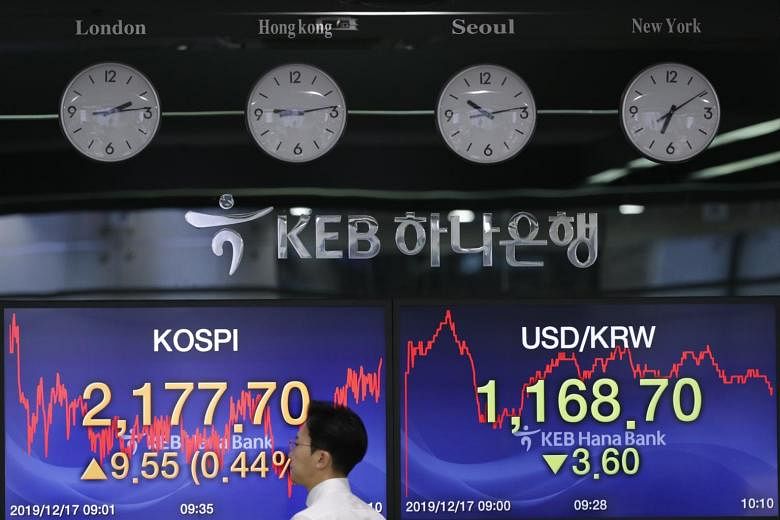SEOUL (BLOOMBERG) - In South Korea, where the stock market is dominated by mom-and-pop investors fixated on healthcare stocks, it takes a brave soul to recommend selling biotechnology shares.
Han Byung-hwa, a Seoul-based analyst, knows that better than most. He was widely lambasted for an April 2018 report titled "the party is ending", in which he warned investors to reduce their holdings in "abnormally overvalued" biotech stocks or suffer "significant pain when the bubble bursts".
Even though the MSCI Korea Health Care Index has plunged 44 per cent since he published the note, Han isn't ready to embrace the sector anytime soon. Index members are trading at 54 times their projected earnings, making them still too expensive, he said, adding that it won't dissuade non-institutional investors, for whom "the party hasn't ended".
"The so-called 'hot-money' - short-term investment by retail investors - will continue to flourish in the biotech sector," Han said in a phone interview on Wednesday (Dec 18). "Biotech stocks are exactly what they want."
Syntekabio, which analyzes big data on genomics, surged 39 per cent on its debut this week. TiumBio, which develops synthetic drugs, is up more than 40 per cent since its initial offering in November.
Healthcare and biotech shares were the market darlings of 2017, with an 88 per cent jump fuelled in part by government support aimed at reviving sluggish growth in an economy dominated for decades by family-owned conglomerates.
It's been downhill since. The MSCI Korea Health Care Index has slumped 26.6 per cent this year, extending a 4.9 per cent slide in 2018.
Still the sector remains loved by individual investors unfazed by a series of failed clinical studies, a cancelled licence, alleged accounting irregularities, and stock manipulation probes.
Some of the investigations are still ongoing, and several companies have denied any wrongdoing, but criticism by analysts risks inciting a backlash.
"I got many calls from retail investors holding biotech stocks protesting against my report for about two or three months after the publication," Han said. "It's hard for analysts to comment negatively about Korean healthcare stocks, especially the small caps, which are held by many retail investors."
HIGH VOLATILITY
Regulators have warned retail investors of the risks in biotech stocks, including the challenges in proving the cutting-edge technology behind drug development, and precedents of companies "spreading rumors" in order to buoy shares.
Volatility is a hallmark of Korean drug stocks. Helixmith shares peaked at 249,660 won on March 14, before slumping as low as 64,400 won about six months later in the wake of an inconclusive study. HLB has surged almost 800 per cent from an August low as investors looked beyond an earlier failed clinical study in favor of the prospect of its cancer drugs reaching the market.
HLB is the only stock that shows no analyst rating among 111 members of the MSCI Korea Index, according to data collated by Bloomberg. Only one analyst tracks Helixmith - a Goldman Sachs analyst who recommended selling the stock in October.
In South Korea, only 0.1 per cent of the free-of-charge research notes published by local brokerages for all Korean stocks have a sell rating on a stock, according to South Korea's top financial watchdog, Financial Supervisory Service, underscoring a distorted corner of the nation's equity market.
"It is not easy to add biotech stocks when you see the balance sheet or cash flow of those companies," said Lee Seung-Hoon, head of equity at DB Asset Management in Seoul. "And valuations of those of Korean firms are significantly higher than their US counterparts."
"Retail investors should see the fundamentals of the firms, rather than focusing on short-term profits," said Hwang Sei-woon, research fellow at Korea Capital Market Institute. "Analysts should cover this sector more actively if it is getting a lot of attention from market participants."

